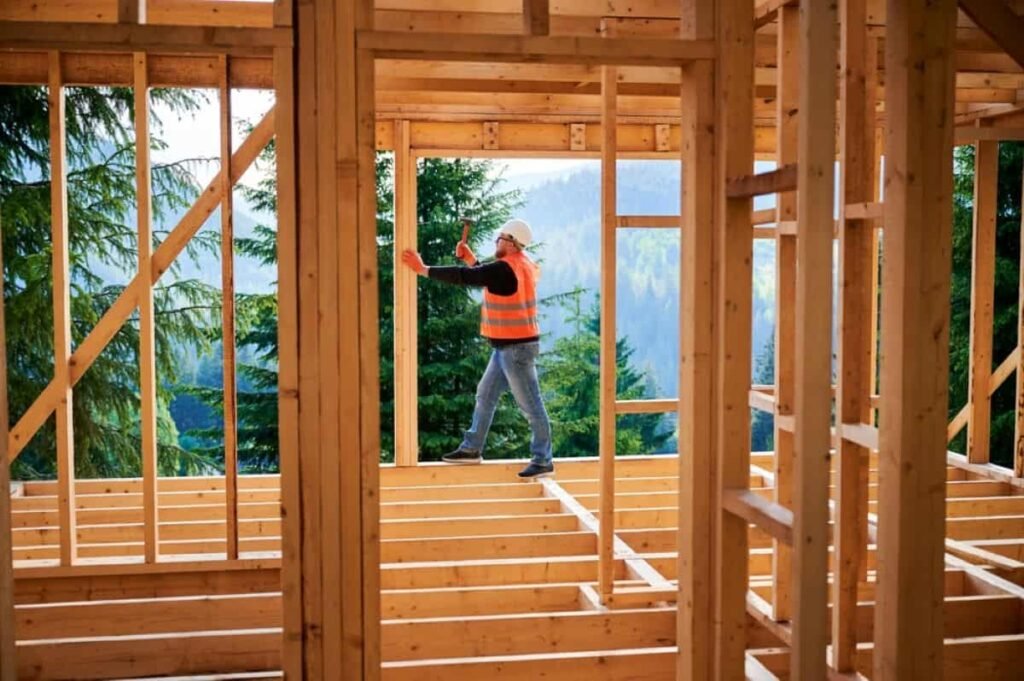Understanding Phase Inspections for New Construction Homes
Buying a home can be stressful, but building one adds a whole new layer of complexity. Whether you’re constructing your dream home in Boise, ID, or observing a new build in Atlanta, GA, one thing remains constant: the importance of ensuring that your home is being built correctly. This is where phase inspections come in.
Phase inspections are crucial for new construction homes, as they involve an inspector going through the house at specific stages during the building process. Also known as 3-phase inspections, this process helps catch potential issues early on, before they become costly or difficult to address.
Key Phases in a New Construction Phase Inspection
Phase inspections are typically divided into 3-4 stages, depending on whether you’re building a custom or production home.
Phase 1: Pre-pour/pre-foundation
Before the foundation slab is poured, an inspector will assess site preparation, footing trenches, rebar, drainage, and plumbing stub-outs to ensure a solid foundation.
Phase 2: Framing/pre-drywall
After framing and mechanical work, but before insulation and drywall installation, this inspection focuses on structural integrity, plumbing, electrical, HVAC systems, and roof structure.
Phase 3: Final/pre-closing
Performed when the home is nearly complete, this inspection covers all visible and operable components, ensuring compliance with building codes before move-in.
Phase 4: 11-month warranty
This optional inspection, conducted close to the end of the builder’s warranty period, allows for the identification of any issues that may have arisen since moving in.
Cost of Phase Inspections
The cost of phase inspections varies based on location, home size, and the number of phases scheduled. On average, expect to pay between $100-$500 per phase, or around $800-$2000 for a full package covering all phases.
When to Schedule Inspections
It’s advisable to book inspections early and align them with your builder’s timeline to avoid missing key construction milestones.
- Pre-pour inspection: Before foundation concrete is poured.
- Pre-drywall inspection: After framing, plumbing, and electrical work, but before insulation.
- Final inspection: Before final walkthrough or closing.
- One-year warranty inspection: Towards the end of the builder’s warranty period.
Inspection Criteria for Each Phase
Inspections at different stages of construction focus on specific aspects to ensure that your new home is built correctly and meets quality standards.
Pre-pour foundation phase
Inspectors assess the foundation groundwork to prevent long-term issues like cracks or drainage problems.
- Proper footing depth and width
- Correct placement of rebar and cables
- Secure plumbing and electrical installations
- Effective grading and drainage
- Soil compaction and vapor barrier integrity
Pre-drywall framing phase
This phase focuses on the structural integrity of the home before the walls are sealed.
- Framing quality: Straight, level, and braced walls
- Structural connectors: Properly installed connectors
- Plumbing and electrical: Correct placement and support
- HVAC ducts: Proper sizing and sealing
- Fire blocking and insulation prep: Compliance with codes
Final completion phase
Inspectors conduct a full walkthrough to ensure the home is ready for occupancy.
- Major systems: HVAC, plumbing, electrical
- Roofing and exterior elements: Gutters, siding, grading
- Interior finishes: Doors, flooring, paint
- Functionality checks: Outlets, water flow, heating/cooling
- Safety items: Smoke detectors, ventilation
One-year warranty phase
This inspection, conducted before the warranty expires, identifies any issues that may have developed over time.
- Cracks or shifting: Walls, ceilings, foundations
- Leaks or drainage issues: Post-construction developments
- Mechanical wear: HVAC, plumbing components
Utilizing Phase Inspections Effectively
After each phase inspection, you’ll receive a detailed report outlining any findings and recommendations for corrective actions.
1. Coordinate with Your Builder Early
Inform your builder about your inspection plans before construction begins to ensure seamless coordination.
2. Include Inspection Contingencies
Consider adding inspection contingencies to your contract to review findings and request repairs before closing.
3. Request Repairs Based on Findings
Communicate inspection findings with the builder and negotiate repairs or holdbacks as needed.
Final Thoughts: New Doesn’t Mean Perfect
While a new home may seem flawless, mistakes can occur. Phase inspections provide essential oversight at critical construction stages, offering peace of mind and protection for homeowners.
FAQs about Phase Inspections
Do phase inspections replace municipal building inspections?
No, phase inspections supplement municipal inspections by focusing on quality and workmanship beyond code compliance.
Can a builder refuse a phase inspection?
Most builders should accommodate phase inspections, but it’s advisable to discuss this upfront and include inspection access in your contract.
Are phase inspections mandatory?
Phase inspections are optional but highly recommended for new construction homes to ensure quality and long-term performance.

